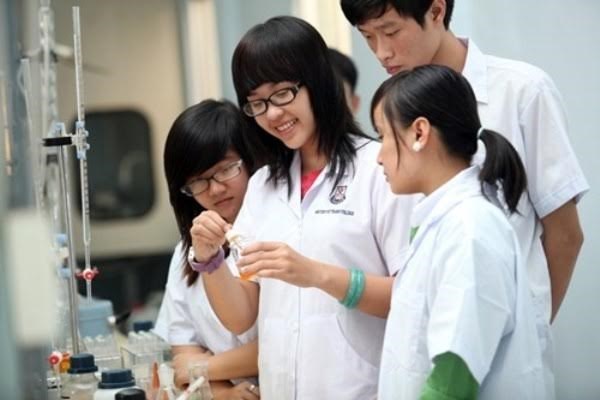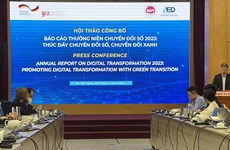External ties to be strengthened to develop basic sciences
Vietnam is set to enhance bilateral and multilateral cooperation to step up research activities in basic sciences, according to a programme for basic sciences development between 2017 and 2025.
 About 15-20 groups of young researchers are expected to be developed in each field by 2025 (Photo: Ministry of Science and Technology)
About 15-20 groups of young researchers are expected to be developed in each field by 2025 (Photo: Ministry of Science and Technology)Hanoi (VNA) – Vietnam is set to enhance bilateral and multilateral cooperation to step up research activities in basic sciences, according to a programme for basic sciences development between 2017 and 2025.
The programme, recently approved by the Prime Minister, focuses on chemistry, life science, earth science, and marine science.
It aims to create a contingent of highly qualified scientists to help align scientific personnel training with international standards. It looks to develop 15-20 groups of young researchers in each field by 2025 so as to speed up the formation of research universities.
The programme targets a higher stature for Vietnam’s sciences in the region and the world, with some fields expected to rank third or fourth in ASEAN by 2025.
The number of scientific studies published on international prestigious magazines listed in SCOPUS database is hoped to increase by 20-25 percent (10-15 percent in terms of marine science) each year on average.
To carry out the plan, the State will assign specialised science-technology organisations to conduct scientific research to create products that can be used in manufacturing and daily activities.
To improve the basic sciences research capacity at tertiary educational institutions, investment will be poured into key laboratories in each field and research groups. While research tasks will be farmed out to young scientists, high school and universities students who win prizes at national and international competitions will also be honoured.
Vietnam will boost cooperation with the Russian Foundation for Basic Research and countries with developed basic sciences in East Asia, the EU and North America.
In multilateral cooperation, it will foster links in UNESCO’s programmes such as the International Basic Sciences Programme, the Man and the Biosphere Programme, the Intergovernmental Oceanographic Commission, the International Hydrological Programme, and the International Geoscience and Geoparks Programme.-VNA













